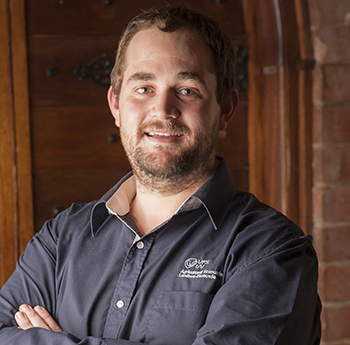Latest News Archive
Please select Category, Year, and then Month to display items
04 April 2024
|
Story Lunga Luthuli
|
Photo SUPPLIED
 Dr Juliet Kamwendo champions gender-inclusive climate action in Africa. Her expertise at the recently held AFR100 workshop highlighted vital steps towards sustainable and equitable development.
Dr Juliet Kamwendo champions gender-inclusive climate action in Africa. Her expertise at the recently held AFR100 workshop highlighted vital steps towards sustainable and equitable development.
Dr Juliet Kamwendo, Lecturer and Programme Director for Gender Studies in the Centre for Gender and Africa Studies at the University of the Free State, is spearheading efforts to integrate gender considerations into Africa's climate restoration agenda. Reflecting on her involvement, Dr Kamwendo stated, "This is particularly crucial, as women make up almost 50% of the population in Africa, and the depletion and degradation of land affect them disproportionately."
She recently served as a gender expert at the AUDA-NEPAD AFR100 workshop in Ouagadougou, Burkina Faso, from 25 to 29 March 2024. This initiative aims to restore forests and degraded land across Africa by 2030, with a focus on gender equality.
The workshop emphasised the integration of gender perspectives into the AFR100 project, acknowledging the disproportionate impact of land degradation on women. Dr Kamwendo's expertise highlighted the need to empower women in climate change interventions, addressing existing gender inequalities exacerbated by environmental degradation.
“Women – who are primarily responsible for household food security and water provision – bear the brunt of environmental degradation, leading to increased workloads, reduced income opportunities, and heightened vulnerability to climate-related disasters. Furthermore, the loss of forest cover and biodiversity further exacerbates the challenges faced by women, particularly in rural areas where they depend heavily on natural resources for their livelihoods,” added Dr Kamwendo.
Her participation highlights academia's crucial role in fostering inclusive and sustainable development, emphasising interdisciplinary collaboration to tackle complex environmental challenges. Through initiatives such as AFR100, stakeholders are working towards a more resilient and gender-responsive future for Africa.
Dr Dirk Strydom named 2015 Free State Agriculturist of the Year
2015-11-30

Dr Dirk Strydom, head of the Department of Agricultural Economics at the University of the Free State, was chosen as the 2015 Free State Agriculturist of the Year by the Agricultural Writers Central Region.
Photo: Sonia Small |
Dr Dirk Strydom, a member of the Vice-Chancellor’s Prestige Scholars Programme (PSP) at the University of the Free State (UFS), was presented with the title of 2015 Free State Agriculturist of the Year.
Dr Strydom, head of the Department of Agricultural Economics, received the award on 23 October 2015 from the Agricultural Writers Central Region, the professional association promoting the image and standards of agricultural journalism in South Africa.
“A driven and ambitious young academic,” is how Dr Strydom is described.
According to the Agricultural Writers, Dr Strydom is blessed with the rare skill of bringing to his engagement with the agricultural community at large the same excitement and focus with which he approaches his students and his research.
“Strydom has perfected the art of disseminating complicated theory, and the intricacies of the South African Futures Exchange to the agricultural community.”
Dr Strydom epitomises the new generation of young scholars emerging from the PSP. This new breed of academic is very aware of the need to translate published scholarly discourse into practical usefulness for the broader public.
Hence Dr Strydom’s emphasis on the duty of the scholar to share vital innovation, intricate research, and its applications, not only with students but with the community at large.
The award is recognition for Dr Strydom’s work by the agricultural community.
He was also the recent recipient of an award from the Brahman breeders for his “outstanding scientific contribution” to their industry.